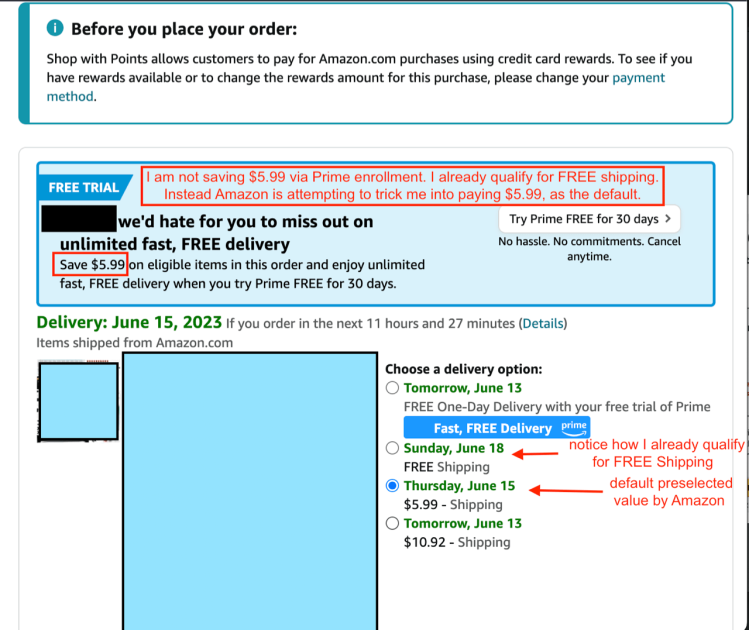ICYMI: Stratechery’s Ben Thompson’s Analysis On The FTC Lawsuit Against Amazon Prime
Technology and media analyst Ben Thompson is the latest expert to question the FTC’s lawsuit targeting Amazon Prime. In his piece, he notes that the FTC is targeting a non-issue in a product that consumers enjoy and dismantles the FTC’s “dark patterns” and cancellation process claims.
Here are the key takeaways from Thompson’s analysis:
The FTC is targeting a non-issue—consumers enjoy Prime’s benefits
Thompson notes that “the chief reason why this complaint rubs me the wrong way” is that for years he hadn’t even thought “about the ease of signing up for Prime and the difficulty of cancelling” the subscription service until the FCC’s complaint targeting Prime services.
— “I started with my own anecdote to explain why I am not personally familiar with the FTC’s complaints about the ease of signing up for Prime and the difficulty of cancelling: I haven’t had even a thought of going through either process for years. Indeed, even though I only live in the U.S. for a part of the year Prime is still worth it (and you get international shipping considerations as well). This, to my mind, is the chief reason why this complaint rubs me the wrong way: even if there is validity to the FTC’s complaints (more on this in a moment), the overall thrust of the Prime value proposition seems overwhelmingly positive for consumers; surely there are plenty of other products and subscriptions that aren’t just bad for consumers on the edges but also in their overall value proposition and reason for existing.”
The FTC’s “dark patterns” allegations are misguided
Thompson points out that while the FTC complaint states that Amazon is attempting to trick people into subscribing to Prime, the complaint ignores that Prime delivers “a meaningful distinction” in delivering multiple days earlier. “The last image, for example, complains that Amazon is lying because the customer already qualifies for free shipping, while ignoring that the free shipping on offer from Prime arrives three days earlier! That seems like a meaningful distinction.”

— Thompson continues: “[T]he FTC’s complaint about dark patterns when it comes to signing up for Prime is rooted in the assumption that consumers lack knowledge and are easily tricked; the FTC’s complaint about Amazon presenting reasons to not cancel is rooted in the assumption that consumers are already fully-informed and ought to be able to accomplish their goal in as few clicks as possible. The better explanation is that the FTC is simply anti-business.”
The FTC’s complaint about Prime’s cancellation process is severely flawed
First, Thompson points out, “it was striking that no one seemed to have saved-up screenshots about the cancellation process, perhaps because few Prime members seem to want to go through with it.”
Furthermore, he states this part of the complaint is “absolutely ridiculous” and that “Amazon’s entry into the cancellation process is clear.” “Set aside all of the discussion above about the overall value of Prime and the problem of free-loaders: this specific part of the complaint is absolutely ridiculous. Amazon’s flow — at least as depicted by the FTC in their own complaint — is completely reasonable, and that’s even before you start discussing the contrast with entities that let you sign up on the web but only cancel by call. Amazon’s entry into the cancellation process is clear, the flow is clear, and it’s not a crime that they seek to educate would-be cancellers as to why they might not want to cancel.”
Check out the full analysis here and the fast and furious expert criticism of the FTC lawsuit here.
